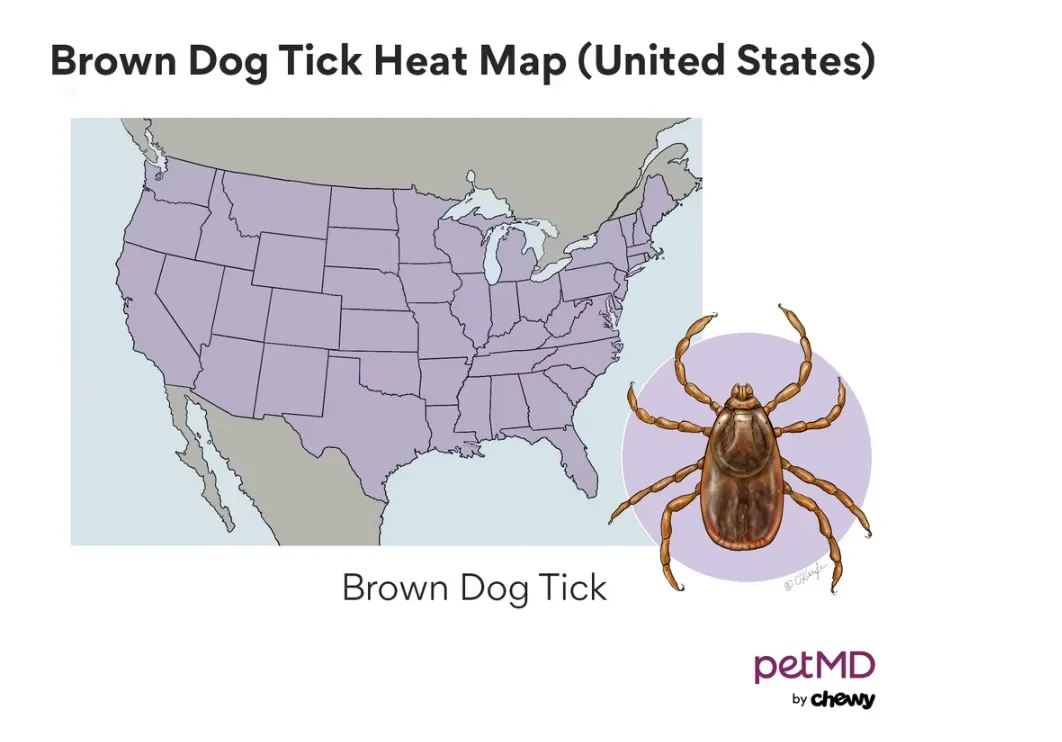Ensuring your dog’s optimal health and happiness hinges significantly on proactive preventative care. Among the most crucial aspects of this care is the consistent use of effective Medicine For Ticks And Fleas In Dogs. These tiny parasites, if left unchecked, can lead to a multitude of serious health complications, ranging from skin irritations to life-threatening diseases for your beloved canine companion, and even pose a risk to human family members. This comprehensive guide, informed by veterinary expertise, will walk you through everything you need to know about protecting your dog from fleas and ticks, from understanding their dangers to selecting the most suitable preventative and treatment options available on the market.
Why is Medicine for Ticks and Fleas Essential for Your Dog?
Fleas and ticks are external parasites, scientifically known as ectoparasites, meaning they reside on the exterior of their host. To survive, these pests must latch onto their host, bite them, and feed on their blood. This parasitic activity can directly and severely impact your dog’s well-being.
The Dangers of Fleas
Flea bites are not merely an annoyance; the saliva from a flea can trigger severe allergic reactions in dogs, leading to intense itching, a condition known as flea allergy dermatitis. Prolonged or severe infestations can cause significant blood loss, particularly in puppies and smaller dogs, which may result in anemia. The constant scratching and biting can also lead to secondary skin infections, further compromising your dog’s health. Furthermore, fleas can transmit tapeworms if ingested by your dog, adding another layer of health risk. For dogs suffering from intense itching due to various causes, including flea bites, exploring options for anti itch medication for dogs can provide much-needed relief and prevent further skin damage.
The Risks from Ticks
Ticks are notorious for their ability to transmit a wide array of debilitating diseases to dogs. A single tick bite can lead to localized infections, abscesses, and in rare cases, even tick paralysis, which can be fatal if not treated promptly. More commonly, ticks are vectors for serious illnesses such as Lyme disease, Ehrlichiosis, Anaplasmosis, and Rocky Mountain Spotted Fever. These tick-borne diseases can cause a range of symptoms, including fever, lethargy, lameness, and organ damage. Early detection and prevention are key to mitigating these severe health risks. If you suspect your dog has been exposed to ticks or is showing signs of illness, discussing home remedies for tick fever in dogs with your vet might be an initial step while awaiting professional diagnosis and treatment.
Zoonotic Concerns
The threat posed by fleas and ticks extends beyond your canine companion. Several diseases transmitted by these parasites, such as Lyme disease and Rocky Mountain Spotted Fever, are zoonotic, meaning they can spread from animals to humans. This emphasizes the critical importance of keeping your dog free of fleas and ticks, not only for their health but also for the safety and well-being of everyone in your household. A consistent routine of using medicine for ticks and fleas in dogs helps maintain a healthy home environment.
When to Start and Continue Flea and Tick Medicine for Dogs
Fleas and ticks are remarkably resilient and can thrive in diverse geographical regions and climates, often persisting year-round even in colder areas due to indoor environments. Given their widespread presence and the serious diseases they carry, veterinarians universally recommend starting medicine for ticks and fleas in dogs as early as 8 weeks of age and continuing prevention consistently throughout your dog’s entire life, regardless of the season. This year-round approach ensures continuous protection against these persistent parasites and the potential health threats they pose.
Choosing the Right Medicine for Ticks and Fleas in Dogs: Key Considerations
With a vast array of products designed to combat parasites, selecting the optimal medicine for ticks and fleas in dogs can seem daunting. These products utilize various mechanisms, including pesticides to kill existing parasites, repellents to deter them, or growth inhibitors to disrupt their life cycle and prevent infestations. Each targets pests at different life stages, offering a multi-faceted approach to protection.
Combination Preventatives: Multi-Parasite Protection
Some preventative products are solely effective against a single type of parasite, typically fleas. However, many modern medicines for ticks and fleas in dogs are designed as “combination preventatives.” These formulations contain multiple active ingredients that provide broader protection against various pests. Beyond fleas and ticks, these comprehensive options often include additional protection against internal parasites like heartworms, roundworms, hookworms, and tapeworms, as well as skin and ear mites. Products like Credelio Quattro exemplify this broad-spectrum approach, covering fleas, ticks, heartworms, roundworms, hookworms, and tapeworms, offering one of the most extensive parasite protections available.
Factors to Discuss with Your Veterinarian
Before making a decision on any medicine for ticks and fleas in dogs, it is absolutely essential to consult with your veterinarian. They can help you evaluate the best fit for your dog’s specific needs, health status, and lifestyle. When reviewing product labels and discussing options with your vet, ensure you cover the following critical points:
- Species Appropriateness: Confirm the product is specifically formulated for dogs, not cats, as some ingredients toxic to cats are safe for dogs.
- Weight Range: Verify that the product is within the correct weight range for your pet to ensure effective and safe dosing.
- Parasite Coverage: Ensure the chosen medicine protects against the specific parasites prevalent in your area and those your dog is at risk of encountering.
- Administration Guidelines: Understand whether the product should be given with food and how often it needs to be administered.
- Onset of Action: Ask about how long it takes for the product to start working effectively.
- Bathing Restrictions: Inquire about how soon you can bathe your pet after application, especially for topical treatments.
- Safety Concerns & Adverse Reactions: Discuss any potential safety concerns or known side effects, and know what steps to take in the unlikely event of an adverse reaction.
Application Method (Oral vs. Topical)
Medicine for ticks and fleas in dogs primarily comes in two main application forms, each with its own advantages and considerations:
Oral Treatments: These are chewable tablets that your dog ingests, often flavored to resemble a treat. Oral treatments offer convenience and are an excellent choice for dogs who dislike topical applications or for households with young children or other pets who might come into contact with a wet topical product. They also aren’t affected by bathing or swimming. However, it’s important to ensure your dog consumes the entire tablet and doesn’t vomit it up before it’s fully absorbed. For those seeking convenient solutions, exploring chewable flea and tick meds for dogs can offer an easy way to ensure compliance and consistent protection.
Topical Treatments: These are liquid solutions applied directly to your dog’s skin, typically between the shoulder blades or down the back. Topical preventatives are ideal for picky eaters or dogs with sensitive stomachs who may not tolerate oral medications. However, caution is necessary to prevent small children or other animals from touching or licking the application site before it dries. Topical treatments may also be less effective for dogs who swim frequently or require regular baths, as water can diminish the product’s efficacy.
Geographic Location & Local Parasite Risks
The prevalence and types of parasites, including specific species of fleas and ticks, can vary significantly depending on your geographic location. Some regions may have higher concentrations of certain tick species known to carry particular diseases. The Companion Animal Parasite Council (CAPC) is an invaluable resource that provides detailed prevalence maps for various parasites across different areas. Consulting their data can help you identify the specific parasite risks in your region, allowing you to choose a medicine for ticks and fleas in dogs that offers targeted protection.
 Tick Distribution Map USA – 1
Tick Distribution Map USA – 1
 Tick Distribution Map USA – 2
Tick Distribution Map USA – 2
 Tick Distribution Map USA – 3
Tick Distribution Map USA – 3
 Tick Distribution Map USA – 4
Tick Distribution Map USA – 4
Your Dog’s Access to the Outdoors
Consider the types of outdoor environments where your dog spends time. Areas such as dog parks, hiking trails, dense woods, tall grassy fields, bushes, and even your own backyard can all harbor fleas and ticks. Dogs that spend significant time in wooded areas or environments frequented by other animals and dogs are at a considerably higher risk of exposure to these parasites. However, even if your dog doesn’t spend much time outdoors, fleas can easily find their way into your home through window screens, on other pets that venture outside, or even hitch a ride on your clothing and shoes. For this reason, veterinarians strongly recommend year-round medicine for ticks and fleas in dogs, regardless of how much time they spend outside.
Genetic Sensitivities: The MDR-1 Gene
Certain dog breeds, including Collies, Australian Shepherds, and Shetland Sheepdogs, may carry a specific gene mutation known as MDR-1. This mutation affects their ability to properly metabolize and eliminate certain medications, making them more susceptible to adverse reactions at standard doses. Many veterinarians recommend testing at-risk breeds for the MDR-1 gene. While numerous manufacturers of parasite preventatives have rigorously tested their products for safety in dogs with the MDR-1 mutation and found them to have no adverse effects, it is crucial to discuss this genetic factor with your vet to ensure the chosen medicine for ticks and fleas in dogs is safe for your particular breed.
Dog’s Lifestyle and Activity Level
While no specific breed is inherently more prone to acquiring fleas or ticks than another, a dog’s lifestyle and breed characteristics can influence their exposure risk. Working dogs, herding breeds, and hunting dogs often spend a majority of their day in the field, navigating dense foliage and interacting with wildlife, which significantly increases their chances of encountering parasites. In contrast, dogs who are content staying at home, only venturing outside for brief, controlled periods, may have a lower, though not absent, risk of exposure. Your veterinarian will consider your dog’s typical routine when recommending the most appropriate medicine for ticks and fleas in dogs.
Life Stage: Puppies, Adults, and Seniors
A dog’s life stage is a crucial factor in determining the appropriate medicine for ticks and fleas in dogs. Puppies, especially small breeds, require specific formulations and dosages tailored to their age and weight. Most flea and tick preventatives have a minimum age requirement, typically 8 weeks, but it’s always vital to check the product insert for confirmation. Some products, such as Revolution Topical Solution for Kittens and Puppies, are specifically designed for younger animals and can be used as early as 6 weeks of age. Older dogs or those with underlying health issues may also require careful consideration and dosage adjustments. Always consult your veterinarian to find an appropriate product suitable for your dog’s current life stage and weight.
Pre-existing Medical Conditions
Your dog’s medical history plays a critical role in selecting a safe medicine for ticks and fleas in dogs. Certain classes of preventatives, specifically isoxazolines (e.g., Bravecto, Credelio, Nexgard, Simparica Trio), should be used with extreme caution in dogs with a history of seizures, epilepsy, or other neurological disorders. These medications may potentially lower the seizure threshold in susceptible individuals. A thorough discussion with your veterinarian is essential if:
- Your dog has a history of allergic reactions to any medication.
- Your dog is currently sick, recovering from an illness, or underweight.
- Your dog is pregnant, nursing a litter, or is being considered for future breeding.
In such cases, your vet may recommend alternative preventatives or close monitoring to ensure your dog’s safety. For managing concurrent skin issues that might arise from flea bites or other allergies, discussing best anti itch allergy medicine for dogs can also be part of a holistic treatment plan.
Over-the-Counter vs. Prescription Medicine for Ticks and Fleas in Dogs
When seeking medicine for ticks and fleas in dogs, you’ll encounter both over-the-counter (OTC) and prescription options. Understanding the differences between these categories is important for making an informed choice.
Over-the-Counter (OTC) Options
Over-the-counter flea and tick preventatives do not require a veterinarian’s prescription or a prior professional relationship. These products are readily available for purchase online and at various retail pet stores. While convenient, if you opt for an OTC medicine for ticks and fleas in dogs, it is always prudent to consult with your veterinarian first. They can confirm its safety, efficacy, and appropriateness for your pet, especially given the potential for adverse reactions or insufficient protection compared to prescription-grade products.
Prescription Flea and Tick Medications
Prescription medicine for ticks and fleas in dogs requires authorization from your veterinarian. While they often come with a slightly higher cost than OTC options, most veterinarians strongly recommend prescription products. This recommendation stems from several factors: prescription medications typically undergo more rigorous testing, often provide superior efficacy against a broader spectrum of parasites, and are generally considered safer due to stricter regulatory oversight and the direct involvement of a veterinary professional in their selection and dosing. Your vet will ensure the chosen prescription medicine aligns perfectly with your dog’s health profile, lifestyle, and local parasite risks.
Popular Medicine for Ticks and Fleas in Dogs
The market offers a diverse range of effective products to help protect your dog. Here’s an overview of some popular options, categorized by their application method:
Topical Solutions
Topical medications are applied to the dog’s skin, typically between the shoulder blades.
- Advantage II: A monthly topical product with imidacloprid and pyriproxyfen. It’s fast-acting, killing adult fleas, eggs, larvae, and chewing lice within hours. However, this product does not provide tick prevention. Suitable for dogs and puppies over 7 weeks and weighing more than 3 pounds.
- Advantage Multi: A monthly topical solution containing imidacloprid and moxidectin. This combination targets fleas, sarcoptic mange, intestinal parasites (hookworms, roundworms, whipworms), and prevents heartworm disease. Fleas are killed within hours, while other parasites may take up to 24 hours. It does not offer tick prevention. For dogs and puppies over 7 weeks and weighing more than 3 pounds.
- Frontline Gold: A monthly topical product combining fipronil, (s)-methoprene, and pyriproxyfen. It rapidly kills fleas, ticks, and chewing lice within hours. Recommended for dogs and puppies over 8 weeks and weighing more than 5 pounds.
- Frontline Plus: Another monthly topical solution with fipronil and (s)-methoprene. This combination effectively kills fleas, ticks, and chewing lice. While fast-acting, its onset may be slightly slower than Frontline Gold. Suitable for dogs and puppies over 8 weeks and weighing more than 5 pounds.
- Frontline Shield: A monthly topical product containing fipronil, permethrin, and pyriproxyfen. This formula provides broad protection, killing fleas, ticks, chewing lice, and stable flies, and also repelling mosquitoes, stable flies, and ticks. It starts killing fleas in five minutes and ticks within one hour. For dogs and puppies over 9 weeks and weighing more than 5 pounds. Crucially, this product is highly toxic to cats, requiring extreme caution or avoidance in multi-pet households.
- K9 Advantix II: A monthly topical medicine for ticks and fleas in dogs, featuring imidacloprid, permethrin, and pyriproxyfen. It repels and kills fleas, ticks, mosquitoes, and chewing lice, and also repels biting flies. It begins killing parasites within hours. Suitable for dogs and puppies over 7 weeks old and weighing more than 4 pounds. Similar to Frontline Shield, it is highly toxic to cats and must be used with extreme caution in households with feline companions.
- Onguard Plus: A monthly topical product containing fipronil and (s)-methoprene. This combination kills fleas, ticks, sarcoptic mange, and chewing lice. It is intended for dogs and puppies over 8 weeks old and weighing more than 5 pounds.
- Seresto: A collar-based medicine for ticks and fleas in dogs, using imidacloprid and flumethrin. This collar offers prolonged protection, killing and repelling fleas and ticks for eight months. Fleas are typically killed within 24 hours and ticks within 48 hours of application. Frequent bathing or swimming (more than once per month) may reduce its efficacy, potentially requiring replacement every five months. Approved for dogs and puppies over 7 weeks of age.
- Vectra 3D: A monthly topical medicine for ticks and fleas in dogs, formulated with dinitefuran, permethrin, and pyriproxyfen. This powerful combination repels and kills fleas, ticks, mosquitoes, chewing lice, sand flies, biting flies, and some mites. It begins killing parasites within hours. For dogs and puppies over 8 weeks old and weighing more than 5 pounds. This product is also highly toxic to cats, necessitating extreme caution or avoidance in homes with cats.
Oral Chewable Tablets
Oral chewables are a convenient way to administer medicine for ticks and fleas in dogs.
- Bravecto: A chewable tablet or topical solution containing fluralaner, an isoxazoline. It’s fast-acting, initiating flea kill within two hours and tick kill within 12 hours. Bravecto also demonstrates effectiveness against demodectic, sarcoptic mange, and ear mites. As an isoxazoline, it should be used cautiously in dogs with a history of seizures, epilepsy, or neurological disorders.
- Comfortis: A chewable tablet with spinosad. This product only treats fleas, with a rapid onset, killing fleas within 30 minutes. Dogs and puppies must be at least 14 weeks old and weigh over 5 pounds. Typically administered monthly.
- Credelio: A monthly chewable tablet containing lotilaner, another isoxazoline. Credelio treats both fleas and ticks, starting to kill fleas within four hours of administration. It is suitable for dogs and puppies over 8 weeks and weighing more than 4.4 pounds. Like other isoxazolines, it should be used with caution in dogs with a history of seizures, epilepsy, or neurological disorders.
- Credelio Quattro: An advanced monthly chewable tablet that builds on Credelio’s formula, providing comprehensive protection. It contains lotilaner (for fleas and ticks), moxidectin (for heartworms, hookworms, and roundworms), praziquantel (for two species of tapeworms), and pyrantel (for hookworms and roundworms). Credelio Quattro is available for dogs and puppies 8 weeks of age and older, weighing at least 3.3 pounds.
- Nexgard: A monthly chewable tablet with afoxolaner, an isoxazoline. Nexgard is effective against fleas, deer ticks, American dog ticks, brown ticks, and Lone Star ticks. It also has extra-label use for treating sarcoptic and demodectic mange. It starts killing fleas within four hours and ticks within 48 hours. For dogs and puppies over 8 weeks old and weighing more than 4 pounds. As an isoxazoline, caution is advised for dogs with a history of seizures, epilepsy, or neurological disorders.
- Simparica Trio: A monthly chewable tablet offering broad-spectrum protection with sarolaner (an isoxazoline), moxidectin, and pyrantel. Simparica Trio treats fleas, ticks, roundworms, and hookworms, while also preventing heartworm disease. It is used extra-label to treat demodectic mange, sarcoptic mange, and ear mites. It begins killing fleas and ticks within 12 hours. Recommended for dogs and puppies over 8 weeks old and weighing more than 2.8 pounds. As an isoxazoline, all Simparica products should be used with caution in dogs with a history of seizures, epilepsy, or neurological disorders.
- Trifexis: A chewable tablet combining spinosad and milbemycin oxime. Trifexis is effective against fleas, hookworms, roundworms, and whipworms, and also prevents heartworm disease. It’s a fast-acting drug, starting to kill fleas within 30 minutes. This product does not provide protection from ticks. Suitable for dogs and puppies 8 weeks or older and weighing over 5 pounds.
Conclusion
Choosing the right medicine for ticks and fleas in dogs is a cornerstone of responsible pet ownership, safeguarding your dog’s health against a myriad of painful and potentially life-threatening conditions. Given the diverse range of products and the individual needs of each dog, a personalized approach guided by professional veterinary advice is paramount. Your veterinarian will consider your dog’s age, weight, health history, lifestyle, and your geographic location to recommend the most effective and safest preventative care plan. Consistency is key – year-round protection ensures that your canine companion remains free from the discomfort and dangers posed by these pervasive parasites. For any health concerns or to discuss the best preventative strategy, always consult with your trusted veterinarian.
References
- PetMD. (n.d.). Various articles on flea and tick prevention and treatment in dogs, conditions like dermatitis, anemia, heartworm disease, and specific parasite-borne illnesses.
- Companion Animal Parasite Council (CAPC). (n.d.). Prevalence maps and guidelines for companion animal parasites.
- Jones, L., VMD. (n.d.). Veterinary expertise and clinical experience.
